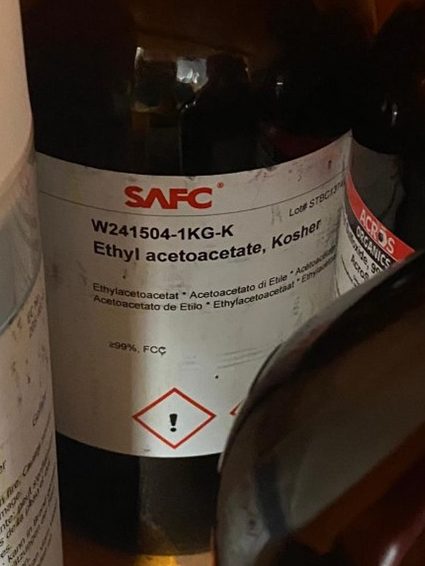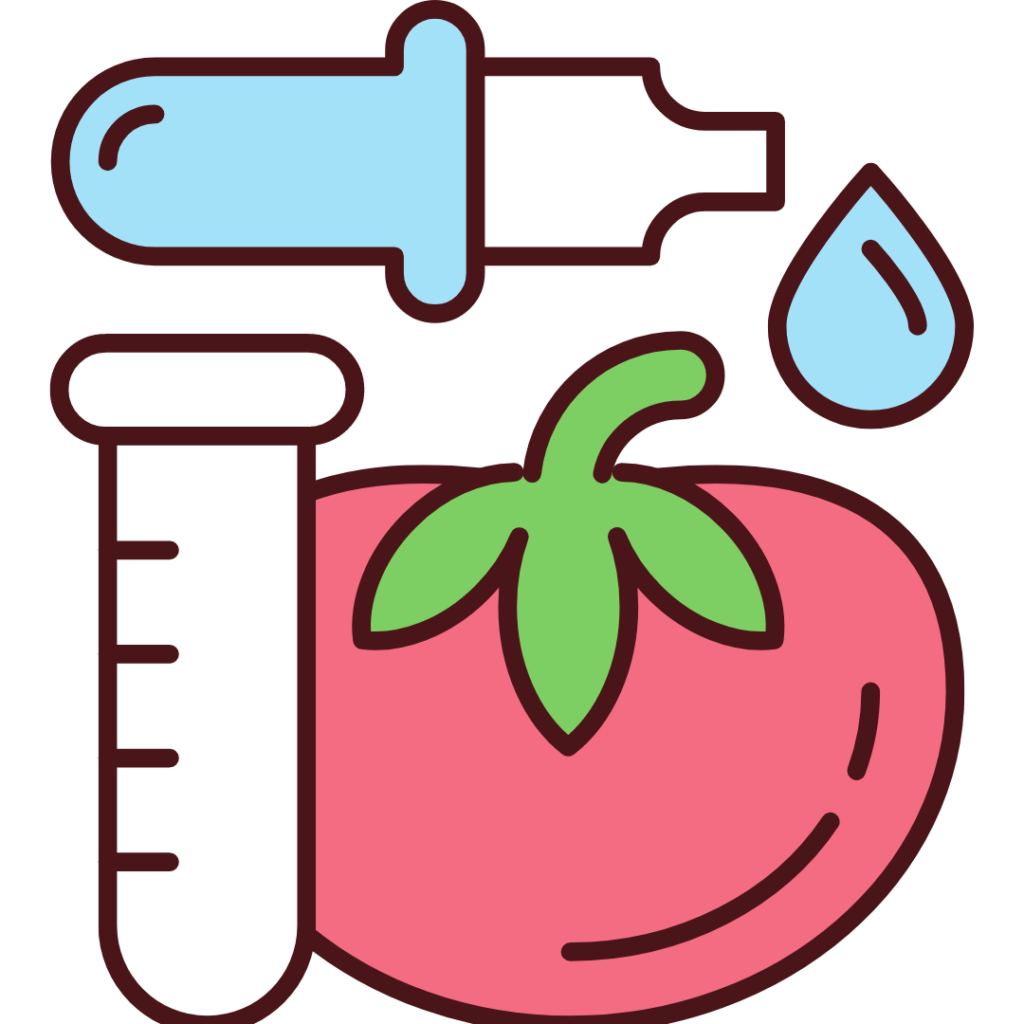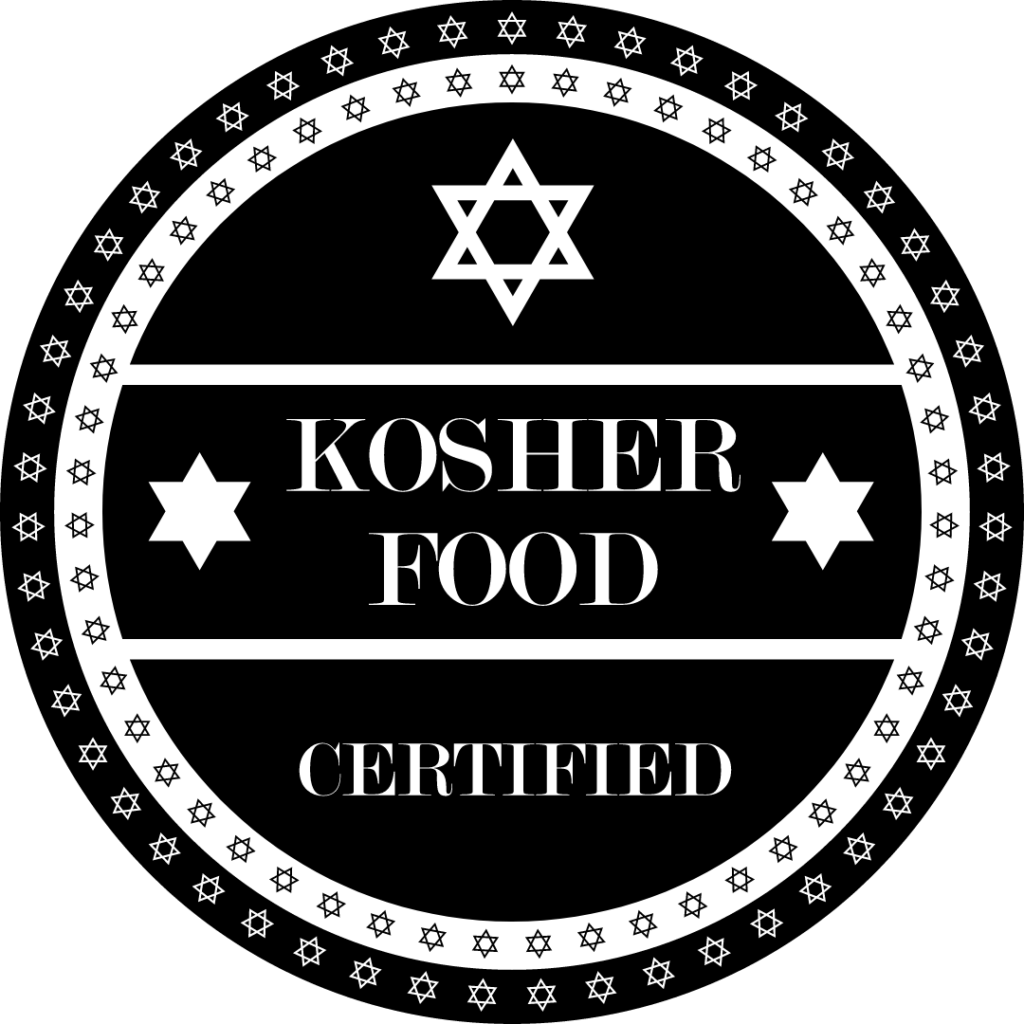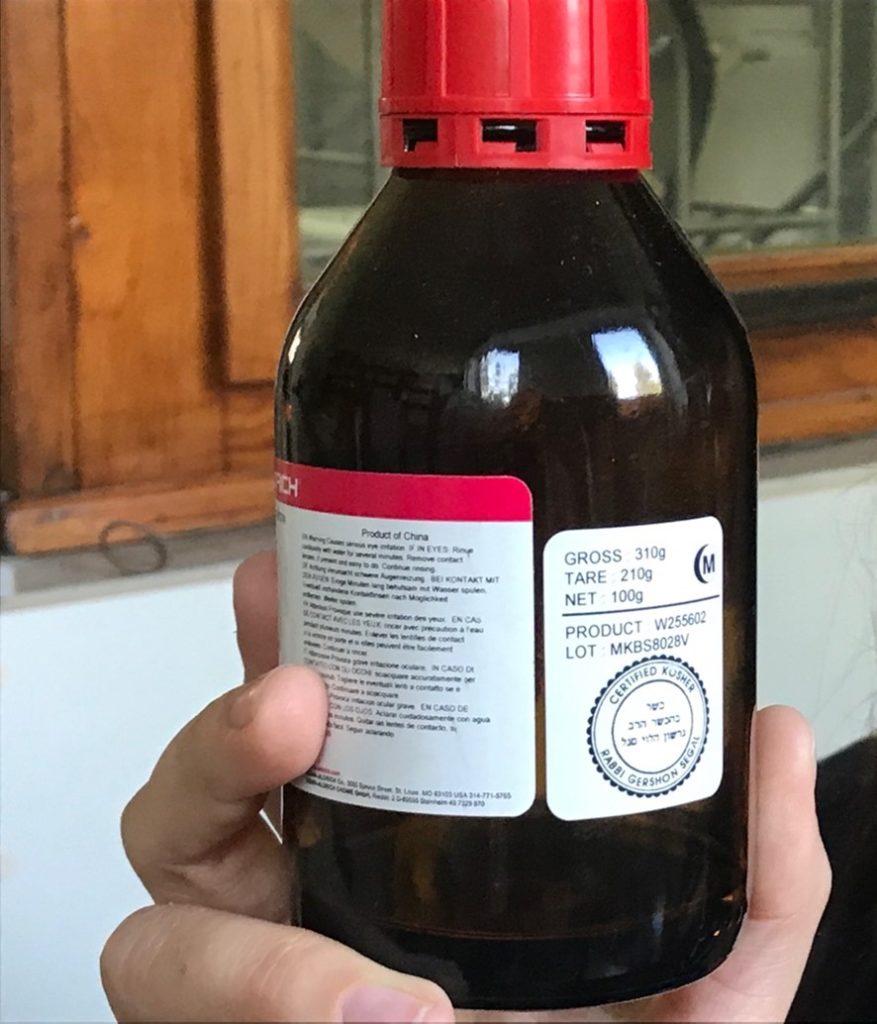I have to admit that there are some funny and interesting situations happening where I work. When people first hear that I am a chemist, they think that I am a cousin of Walter White or that I use a fire extinguisher every day. Even with no explosions on the horizon, and with a perfectly secure environment, working in the lab can be surprising.
“Look Bianka! It’s kosher!”
This story starts with the students (as usual, because they make the best stories!). One day, they came with big smiles on their faces and said: “You have to come with us, and you have to see this for yourself”. I did not know if I should be happy or scared of what I was about to see, and I just decided to follow.
I put my lab goggles on, and the lab coat followed. Then, my students walked me to the shelf where we keep the chemicals and took one bottle from there. What happened next was definitely not something that I could have possibly predicted. One of the students just said: “Look, Bianka! It’s kosher!”.
And there it was: a chemical with the kosher certificate. Wow, this is something that I indeed did not expect. The situation, that I’ve just described happened in Poland, and then I had quite a similar one here in the Netherlands with a colleague coming to me with a kosher chemical.

This made me investigate why certain chemicals hold a kosher label. What did these chemicals have in common? It turned out that both of them were esters. Esters are a type of compound known for their nice and fruity scent. They are being widely used… in the food industry.
The most probable way they reached our shelves is because the vendor is also selling the chemicals to companies producing food. The compounds are used as natural or artificial flavours depending on their source (if they are bio-derived or made in the lab).
The next couple of questions that came to my mind are: what makes a food additive kosher? And does it always need supervision?
It turned out that the answers to these questions are not that simple. There is a certain category of food additives that do not need supervision. In this category, plant-based additives can be found (except wine products). Food additives which are derived from animals are usually prohibited, as they regularly come from impure animals.

One of the examples can be a red dye called cochineal/carmine which sometimes is added to strawberry-flavoured products (or red products). Cochineal is derived from insects living on cacti which are native to Latin America. Fortunately, there is a synthetic replacement available called cochineal red, and has nothing to do with the bugs!
The additives that are noted as problematic include those that can be derived both from animal and plant sources.
One of them is glycerin, which occurs in plant cells naturally, but can also be obtained commercially from oils and fats. It is a common byproduct of the soap and fatty-acid industry. Glycerin is usually used as a sweetener or to help reduce the effects of humidity on food. For similar reasons, a lot of emulsifiers and stabilizers are “risky” food components too, making them a subject for rabbinical supervision.
Gelatin is yet another problematic additive, as it’s produced from animals’ skin and bones. Most of the factories produce it from impure animals (pigs) or pure animals (calves) not slaughtered according to halakha.

Some poskim are lenient with kashrut around gelatin claiming that the production process makes the bones and skin lose their taste to the point of no longer being edible. In general, though, it is better to avoid food that may contain gelatin. Kosher Haribo is made with the use of fish gelatin, which solves the problem!
In general, every complex food industry product needs supervision. For us, as customers, it is hard or impossible to know the source of certain food additives. Not to mention that for the sake of our health sometimes it is better to avoid them altogether. Meanwhile, while you will be taking into consideration the ingredients list for your favourite products in the supermarket, I will be back to my fume hood to work with my chemicals (not very kosher, but also not very edible).
Want to explore more of our (scientific) blogs? Have a look at our content!








